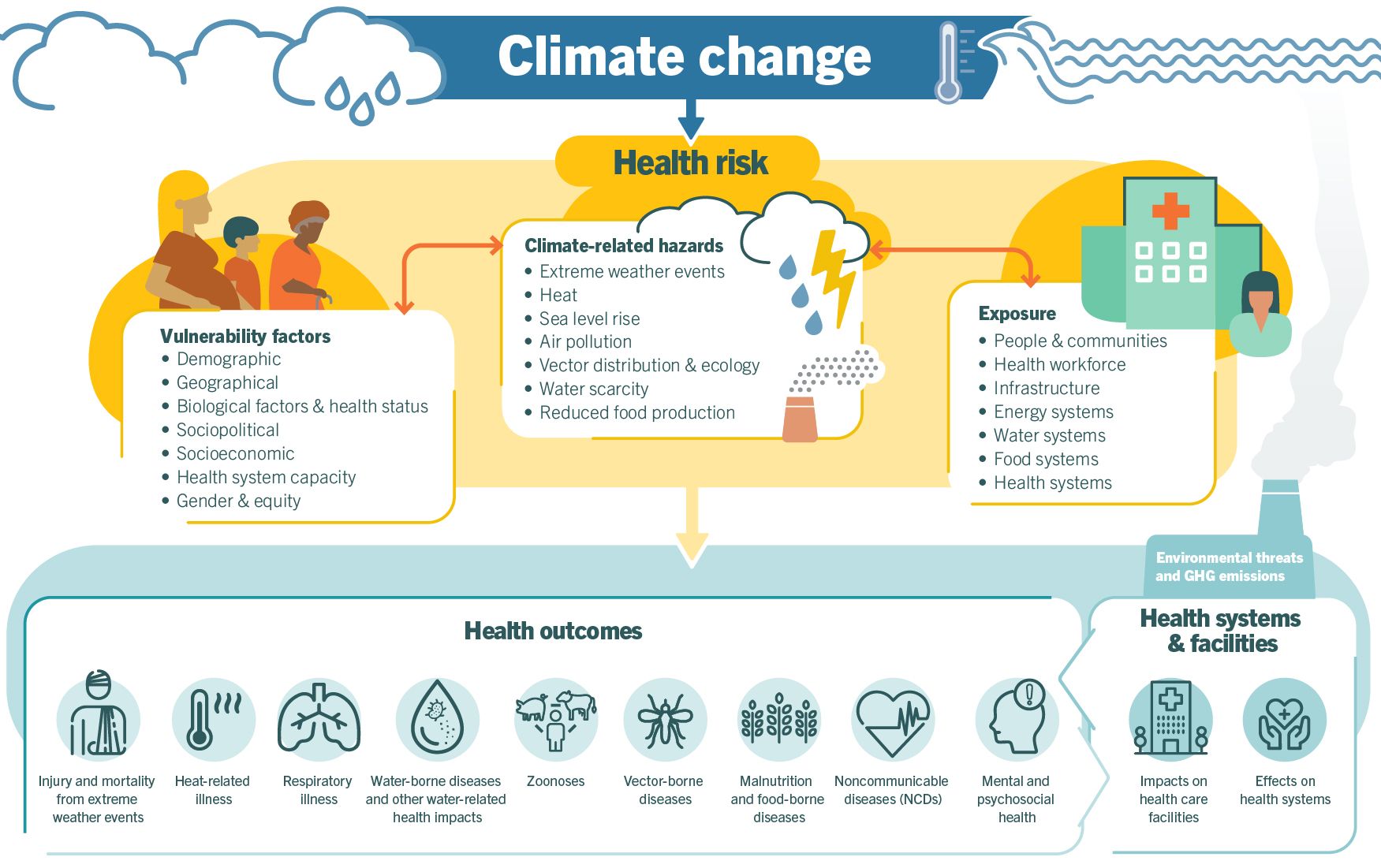Climatebase Fellowship Spotlight: Connecting Climate and Health
Anne McHugh
By Climatebase Fellows Anne McHugh, Candelaria Primero Narváez, Julia Polk, Emma Wardell, and Jacquelyn Demshick. This is a highlight of the Fellow-Led Climate & Health Interest Group, one of many interest groups Fellowship community members have launched.
Human Impact of Climate Change
Much of the discussion of climate change adaptation and mitigation is couched in abstract metrics of gigatons of carbon and trillions of dollars and terawatts of electricity. But there are also very tangible effects on humans.
We know there is a direct connection between climate change and health outcomes, for example– between 7 and 9 million people per year die due to air pollution, 0.5 million people die due to extreme heat, and 2 million people from 1970-2021 have died due to extreme weather events (e.g. droughts, floods, hurricane). All of these events disproportionately impact marginalized groups, both within the US and across the globe.
The impacts of climate change are magnified by disparate access to healthcare, medical racism, and distrust of medical systems. These health system factors mean that people of color and low income communities are disproportionately impacted by the changes wrought by our climate crisis. The number of people dying from climate change related causes increases every year– yet the general conversation between climate change and health outcomes is blurry and indirect at best.

Designing Our Sessions
Reflecting on this powerful introductory experience, we observed that the intersection of climate and human health is rarely part of the discussion. Therefore, we felt emboldened to push this connection to a more central part of the discourse. We sought inspiration for the design of our sessions from Rachel Hausenstamm and the Finance and Investing Interest Group (this is a part of the Fellowship community experience). Our team designed and facilitated six presentations (with over 150 participants) centering the intersection of climate and health, focusing on:
- Conversations for Change: Strategies for Effective Conversations and Coping [Emma Wardell and Vincent Guzman]
- Climate | Health 101 and Hackathon [Priyanka Surio]
- Air Pollution [Julia Polk, Aza Tsogtsaikhan, Puneet Kollipara, Cynthia Prieto Diaz]
- Medical Waste [Alexis Nagel, Cynthia Prieto Diaz, Emma Wardell]
- Built Environment and Biophilic Design [Priyanka Surio, Nafeesa Abuwela, Jacquelyn Demshick]
- Climate | Health Capstone Spotlight and Feedback Session [Anne McHugh and Candelaria Primero Narváez]
Next Steps and Future Directions
We are currently examining next steps for this group, recognizing we do not exist in a vacuum and time is moving forward. We utilized two methodologies: futuring exercises and design thinking and we are excited to share these tools with other organizations who are interested in imagining long-term, community-centered solutions.
Connect here if you are interested in learning more individually or on behalf of organizations working at the intersection of climate change and human health. Connect here if you are working in climate today and would like to incorporate health impact into your work, and connect here if you’d like to join our efforts.
Applications for Cohort 6 of the Climatebase Fellowship are open untill August 16th. Learn More and Apply.
The Author
Anne McHugh
All Stories
In today's edition of This Week in Climate, we look at the Juliana Climate Case and the future of Climate Litigation.
In today's edition of This Week in Climate, we look at the implications of the $660 million verdict against Greenpeace.
In today's edition of This Week in Climate, we look at the Trump Admin’s orders to ramp up logging on federal lands.
In today's edition of This Week in Climate, we look at the topsy turvy future of oil.
In today's edition of This Week in Climate, we look at the ASEAN project bringing renewable energy to millions.